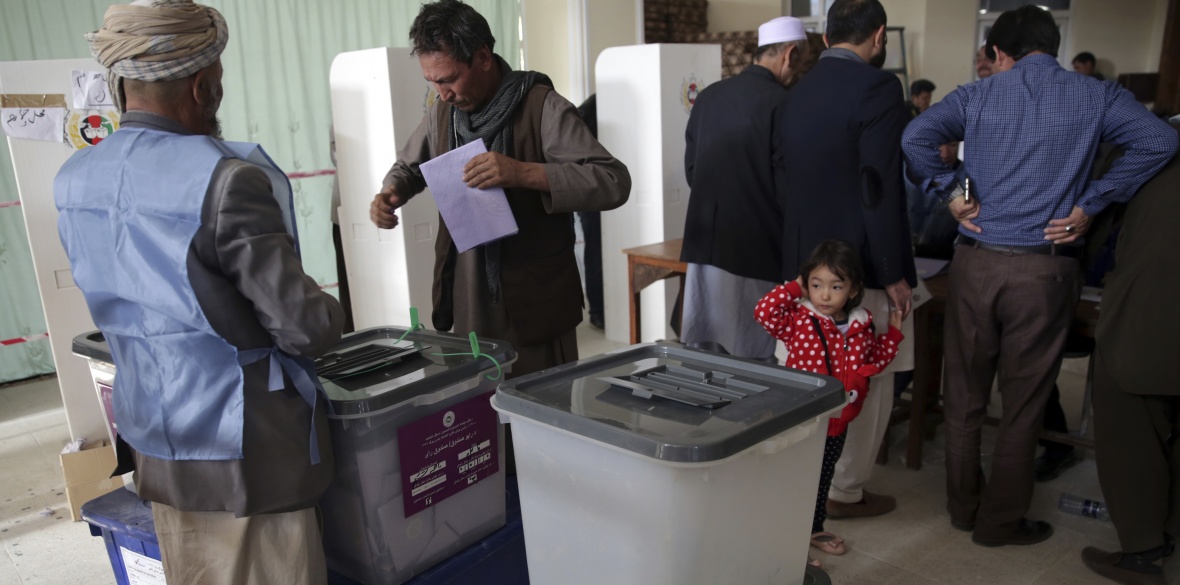This is the last article you can read this month
You can read more article this month
You can read more articles this month
Sorry your limit is up for this month
Reset on:
Please help support the Morning Star by subscribing here
SCORES of people were killed in bomb blasts yesterday as Afghanistan’s most critical elections since the 2001 US-led invasion descended into violence and chaos.
Taliban forces carried out a series of attacks on polling stations across the country after warning Afghans“to protect their lives” by boycotting what they have branded the “fake elections.”
Many election officials trained to use new biometric voting machines failed to turn up at polling stations for fear of attacks, leaving many people unable to cast their votes.
Around 70,000 security forces were deployed in a bid to stem ongoing violence that killed 30-40 Afghan service personnel a day as the resurgent Taliban, which threatens around 70 per cent of the country, attempted to derail the two-day elections, which continued today.
Ten candidates were killed in the run-up to the poll, which was marred by threats from both the resurgent Taliban and rival jihadists from Isis as the two groups took advantage of Afghanistan’s worsening security situation.
Voting was postponed for a week in the southern province of Kandahar after police chief General Abdul Raziq was killed last week and polling stations remained closed in Ghazni province, another Taliban stronghold.
On Saturday, 31 people were killed and 165 wounded in Kunduz and at least nine more died and 114 were wounded in the capital Kabul.
Officials said Taliban attacks started in the early hours, with mortar attacks on towns and cities in the southern provinces of Uruzgan and Helmand.
Around three million people out of the country’s nine million-strong electorate are understood to have defied the threats to cast votes as 2,500 candidates contested 249 seats in the parliament.
Voting was extended in a number of areas hit by technical difficulties with the new electronic voting system, but a third of the country was unable to take part in the elections due to the violence.
Saturday’s vote was three years overdue and seen as a critical test for the Afghan national unity government.
At least 40,000 people have been killed since President Ashraf Ghani and Chief Executive Abdullah Abdullah took power in 2014 and the two leaders have been criticised for failing to introduce reforms and bring peace and stability to the country.
While the Afghan parliament ratifies policies, real power lies with President Ghani, who faces re-election next year.
Preliminary results from the weekend’s voting are due next month, with final results to come in December.










